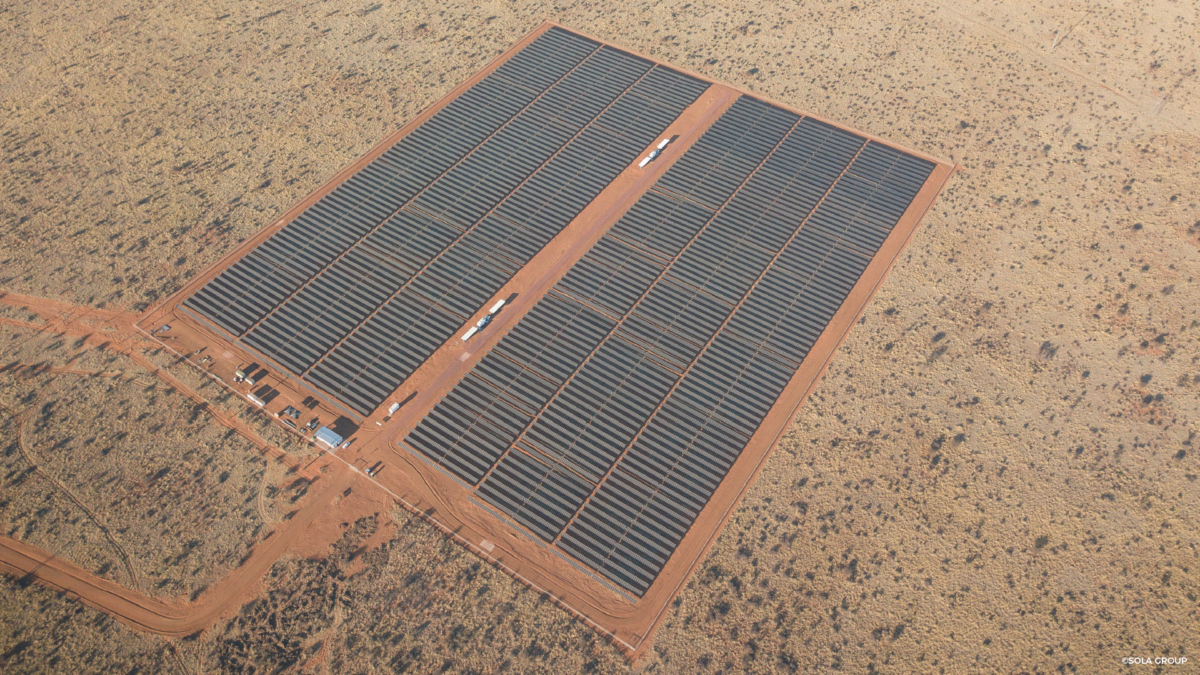Irish developer Mainstream Renewable Power has emerged as the dominant bidder in the latest clean energy procurement round staged in South Africa.
The fifth round of the nation’s Renewable Energy Independent Power Producer Procurement Program (REIPPPP), the results of which were announced on October 28, allocated 25 solar and wind power projects with a total generation capacity of 2,583 MW, and French renewables financial advisory Finergreen has reported Mainstream secured a dozen of them.
Solar and sustainability
Those project wins included six of the 13 solar farms allocated, with a combined generation capacity of 450 MW. Mainstream agreed to accept a significantly lower tariff for the solar energy its projects will generate, at ZAR0.37479/kWh ($0.025), than fellow successful solar bidders Engie, Scatec and TotalEnergies–Mulilo. French energy firm Engie will sell solar power from its three projects (total capacity 225 MW) for ZAR0.47517/kWh ($0.03169); Norwegian developer Scatec – which said it had secured 273 MW of solar capacity at the time but which Finergreen reported won 225 MW across three solar farms – bid a tariff of ZAR0.4846 ($0.03232); and the joint bid by French business TotalEnergies and Cape Town-based developer Mulilo will receive ZAR0.47545/kWh ($0.03171) for the energy generated by the partners' planned 75 MW solar farm.
Based on the bidding results announced by South Africa's Department of Mineral Resources and Energy, Mainstream's solar project wins are thought to be six 75 MW arrays in the Tokologo administrative area of the Lejweleputswa district of Free State. The solar-rich Northern Cape secured only two PV projects, with a generation capacity of 150 MW. Chris Ahlfeldt, an energy specialist at Cape Town-based Blue Horizon Energy Consulting Services told pv magazine when the results were announced, that grid constraints afflicting electric utility Eskom limited options for solar in that region.
Scatec's three projects appear to be in the Western Cape, and the Eastern Cape and KwaZulu-Natal regions failed to allocate any solar projects, although both secured wind facilities in the procurement exercise.
With its wind farms capacity added in, Mainstream secured 1,274 MW of clean power generation capacity in the auction, which will earn it a weighted average ZAR0.41217 ($0.02749) per kilowatt-hour generated.
The average solar tariff secured in the bidding – ZAR0.43104/kWh ($0.02875) – was 51% lower than the price quoted in the last planned round of the national procurement program, which was abandoned in November 2015.
The first round of the REIPPPP program, held in November 2011, secured 1,426 MW of renewables generation capacity across a record 28 projects, to attract a record $6.2 billion of investment. Round two, four months later, allocated 1,040 MW of capacity across 19 projects worth $4.2 billion. Some 17 clean power facilities were awarded in round three, in August 2013, for 1,457 of generation capacity – the highest volume awarded until the latest round – for an investment of $4.5 billion. A 200 MW supplementary round in March 2014 allocated 17 projects for an investment of $1.8 billion, and a $2 billion exercise in August 2014 allocated 13 projects with a generation capacity of 1,121 MW.
This content is protected by copyright and may not be reused. If you want to cooperate with us and would like to reuse some of our content, please contact: editors@pv-magazine.com.




By submitting this form you agree to pv magazine using your data for the purposes of publishing your comment.
Your personal data will only be disclosed or otherwise transmitted to third parties for the purposes of spam filtering or if this is necessary for technical maintenance of the website. Any other transfer to third parties will not take place unless this is justified on the basis of applicable data protection regulations or if pv magazine is legally obliged to do so.
You may revoke this consent at any time with effect for the future, in which case your personal data will be deleted immediately. Otherwise, your data will be deleted if pv magazine has processed your request or the purpose of data storage is fulfilled.
Further information on data privacy can be found in our Data Protection Policy.